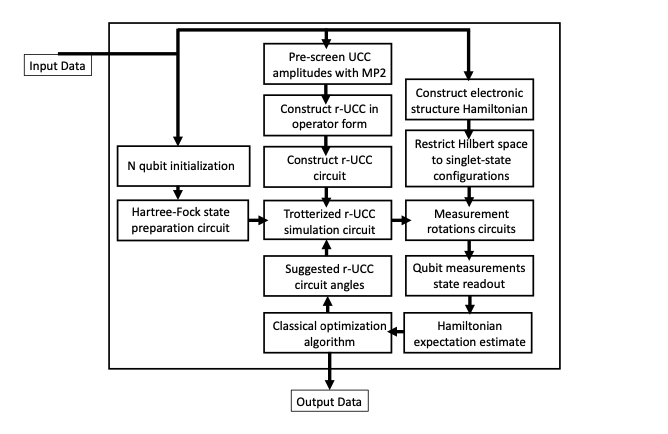
Accurate quantum chemistry simulations remain challenging on classical computers for problems of industrially relevant sizes and there is reason for hope that quantum computing may help push the boundaries of what is technically feasible.
While variational quantum eigensolver (VQE) algorithms may already turn noisy intermediate scale quantum (NISQ) devices into useful machines, one has to make all efforts to use the scarce quantum resources as efficiently as possible.
A team of researchers has combined the so-called restricted approximation from computational quantum chemistry with techniques for simulating molecular chemistry on gate-based quantum computers and thereby obtained a much more resource efficient algorithm with little accuracy loss.
They showed that using the quantum resources freed up by means of the restricted approximation for increasing the basis set can lead to more accurate results and reductions in the necessary number of quantum computing runs (shots) by several orders of magnitude, already for a simple system such as lithium hydride.
